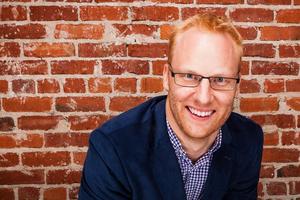This is the second of four stories I did for The Australian on why entrepreneurs are making their way to the United States’ Bay Area.
“Get over here as quickly as you can. Don’t worry about being ready, feeling fully baked or whatever,” says Bugcrowd founder Casey Ellis. “Do whatever you can to get a ticket over here, stay in a hostel and do whatever you need to be here and experience the place.”
Casey Ellis was speaking in the company’s converted warehouse offices just off San Francisco’s Embarcadero waterfront. “Half the price of SoMA,” he smiles while explaining what intending expats should prepare for when moving over to the United States.
Ellis has plenty of reasons to smile as a few weeks earlier the crowdsourced security testing service had announced a successful $15 million fund raising with Australian investor Blackbird Ventures leading the round.
Getting a US base
While he was delighted an Australian investor had lead the funding round, Ellis believed the company had to have a US base from its early days. “One of the reasons for that is if we’re not here, we’re going to be competing with someone who is,” he says.
“When I started going full throttle into BugCrowd, the logic I applied to it was this is either going to fail as an idea or it’s going to move very quickly,” he told The Australian. “If it moves quickly we need to be in a position where we are resourced as well as possible. The place to do it is here.”
“What blew my mind when I got here. I had blinkers on and the move took them off and I’m like ‘there are opportunities here that I hadn’t dreamed of. The reason I didn’t know that was because I hadn’t seen it first hand.’”
Being social
Peter Grant of construction safety service Safesite found social media was a good tool to prepare for the shift to the United States. “If you’re looking at moving at over, but generally speaking you need to make sure there’s a good product and market fit. You need to establish your networks over here, even when I was back in Australia at Muru-D, Twitter was a good way to establish communications.”
“Don’t wait until you get to America, engage with your community and your market as soon as you possibly can. Go onto the webinars, know the language, know the language, know the players – it’s a big country so there’s lots of players. Just start to get involved as soon as you possibly can.”
Founded in Brisbane after Grant found most construction businesses monitored site safety with pen and paper systems, Safesite first moved to Sydney to be part of the first round of Telstra’s Muru-D program. In 2015 he moved to the US as most of the platform’s users were American based and has since set up a network of distribution agents across the nation.
Staying local
“If you’re an organisation like us that needs to be in the US to survive then get over here as soon as possible,” Grant points out. “We have a year on our competitors. If it’s going to be too complex or you already have a profitable business in Australia you may not need to come to the US, you have to be realistic about it. It might make sense to find a local partner.”
Should it make sense to move to the US then it’s important to capitalise on those initial contacts and market research, Grant believes. “When you get over here establish your product market fit and your face-to-face relationships, the dynamic factors that will influence your growth over here.”
The move though doesn’t come without costs he warns, “it can be expensive to set up a business over here so make sure your investors and your legal representation have a full understanding of the implications of what you’re doing and the processes.”
Just do it
Jindou Lee of HappyCo also warns startup founders have to be prepared for some changes when moving to San Francisco. “If you really want to change the world and see your company succeed, get closer to your customers, you need to make sacrifices.“
The founder of real estate inspection app Happy Inspector, Jindou moved from Adelaide to the United States in 2012. After raising three million dollars in funding and being accepted onto the 500 Startups program, the company expanded into general business documentation and renamed itself to HappyCo. “My advice specific to moving to the US is… do it,” he says.
Connecting with the existing networks is also important, “the other piece of advice is to hook up with the different groups that are around,” says Bugcrowd’s Ellis. “The Startmates, the Blackbird folk – figure out who you can get in touch with. People like me who can sherpa you a little bit.” He says “Don’t rely too much on them as you won’t succeed as an entrepreneur if you do, but get a good solid start.”

Leave a Reply